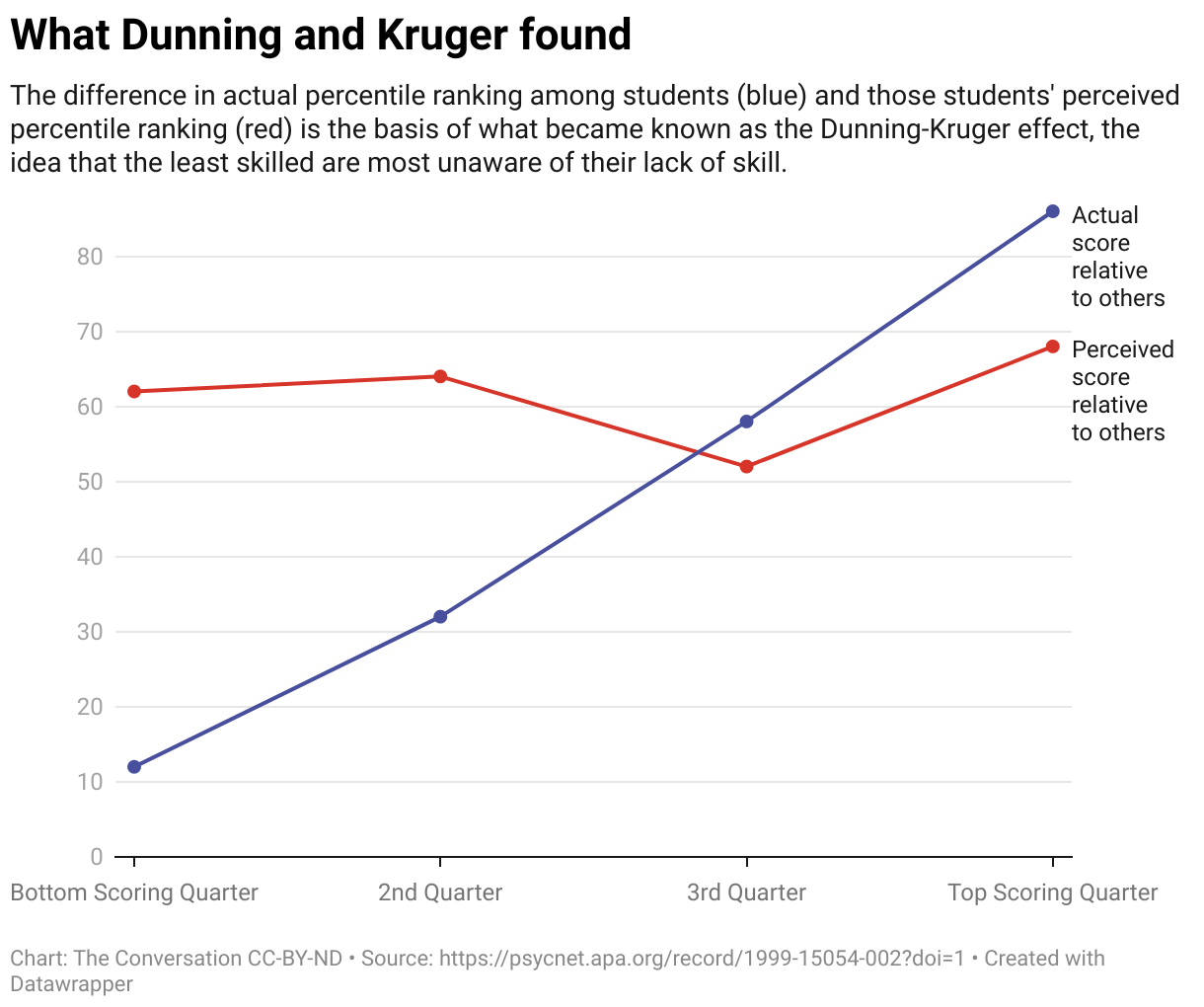Revisiting the Dunning-Kruger effect
On self-assessed competence.

Dunning-Kruger effect is often invoked to describe situations when we have vocal but incompetent majority—whom are vocal because they have low understanding of the subject matter and hence have fewer filters—and silent but competent minority—whom is silent because they have higher understanding of the subject matter and are more inclined to self-doubt.
The core idea behind this cognitive bias is that less competent people are ignorant of how incompetent they are. Eric C. Gaze, a Senior Lecturer in the Mathematics Department at Bowdoin College and Chair of the Baldwin Center for Learning and Teaching, and his team recently revisited the study conducted by Dunning and Kruger.

Gaze and his team conclude that people are capable of judging their level of competence, but that everyone thinks they are better than than average. That is subtle, but important distinction from the popular understanding of the effect.
You can read Gaze's full article here:

Bruno Unfiltered
Subscribe to get the latest posts delivered right to your inbox. No spam. Only Bruno.





